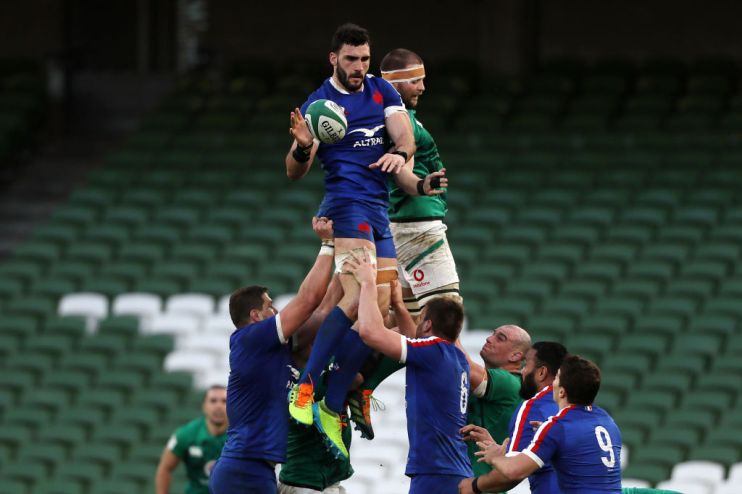How do sports teams and competition organisers defend against the threat of Covid-19 outbreaks?

The Six Nations this weekend has been thrown into disarray with the postponement of France’s fixture with Scotland on Sunday after another French player has tested positive for Covid-19.
At present a total of 11 players and three staff members in the squad have now tested positive and, due to the close contact proximity of the players after training sessions, players will now need to self-isolate.
Rugby union, like many elite sports, has striven to keep players and staff safe and playing through this pandemic by using dedicated advisory bodies who closely monitor the players’ health and bubble protocols.
For this tournament, they have set up the Six Nations Testing Oversight Group (TOG) to review situations such as this.
From rugby to football to golf, major sports have continued to operate throughout the pandemic using strict testing regimes and bubble protocols for players and staff.
And it is to their credit that many in-club outbreaks have been picked up quickly and the players health and safety put at the forefront of planning.
Lest we forget we are still in a precarious and delicate situation, despite the recent progress on vaccination coverage and R number reduction, with Covid-19 across Europe.
Elite sport in general has been successful and even for the French international squad things could have been worse.
The French Federation of Rugby has been using the gold standard RT-PCR testing to detect any signs of infection within the squad.
The FFR has been able to detect the virus infected players and staff and isolate these individuals ahead of the matches this weekend.
With PCR tests, the results can be turned around in as little as 70 minutes, so safe managed work environments can be established faster, enabling sport to continue and in turn detecting the virus early when someone has become infected.
Testing is key
These PCR tests are preferred by the NHS and notably the PGA European Tour.
The golf circuit has had a full and safe 2020 calendar due to their extensive safety bubble protocols and using PCR to detect infection with even a very low viral load (early in the disease course), identifying pre-symptomatic and asymptomatic carriers and stymieing the virus’s spread amongst players, staff and officials.
Through the course of the pandemic, we have been working very closely with the European Tour to ensure all the staff and players have been able to safely continue playing at tournaments. So far we have had fantastic results by using strict bubble protocols and testing twice a week.
Of course golf is not a high contact team game such as rugby, and you could think it easier to stay infection free. But the infrastructure around it is not and the opportunity for infection to creep in is high.
Testing is key to picking up infection quickly and accurately so if there is someone with Covid-19, they can be separated from the rest of the healthy group quickly and effectively taking the fox out of the hen house before we have in-tournament spread.
In all sport there is of course the conversation about how to safeguard scheduling and profits for players to play on the pitch when they are supposed to.
But testing is key to safeguarding schedules and their health, and for virus outbreaks within a 30-man squad of players such as this to be identified and contained as quickly as possible.
I think players’ health is paramount and testing is key to helping protect that.
Professor Denis Kinane is co-founder of Cignpost Diagnostics.